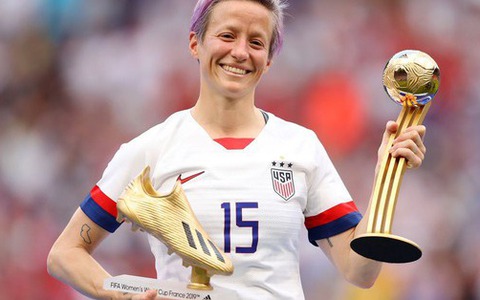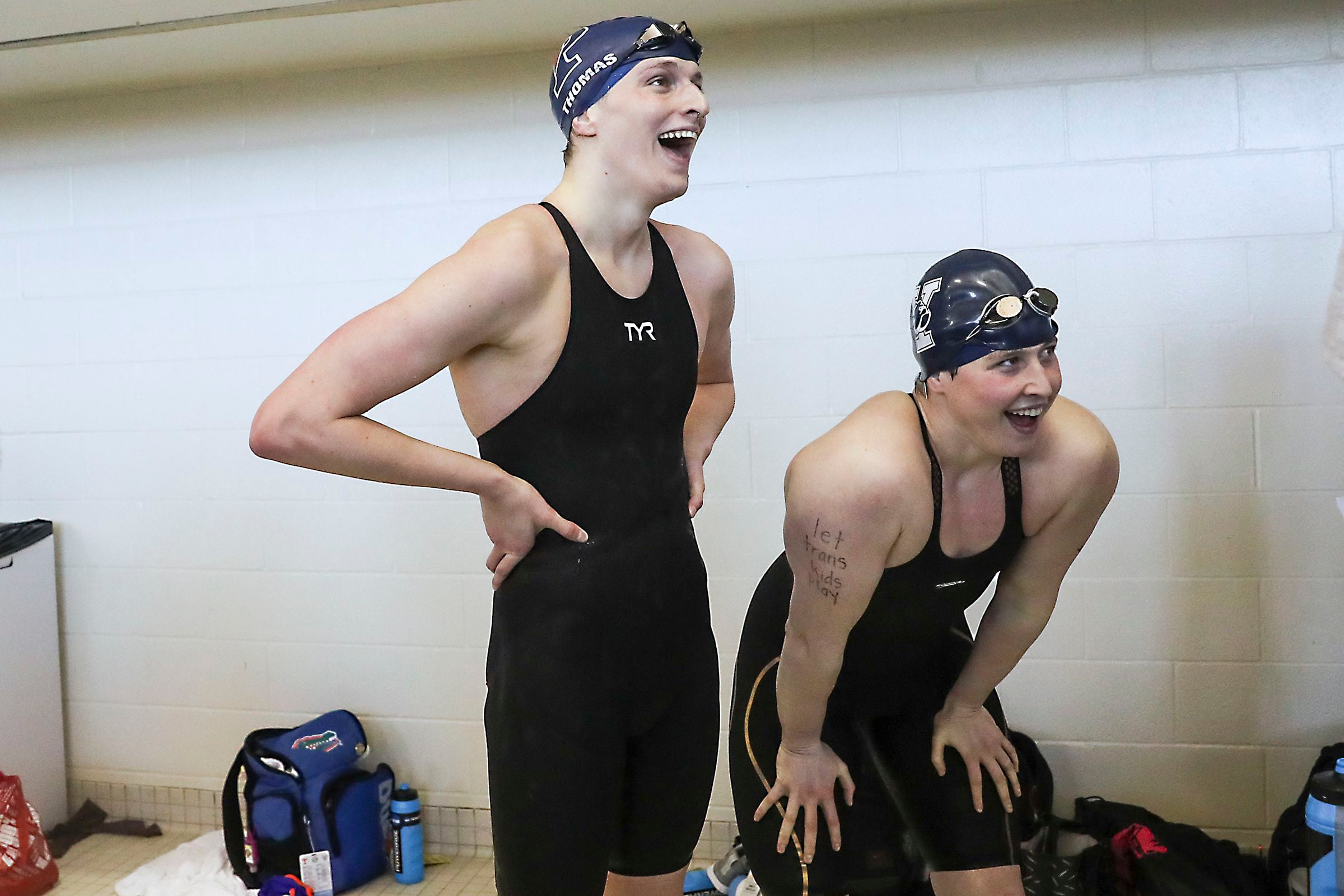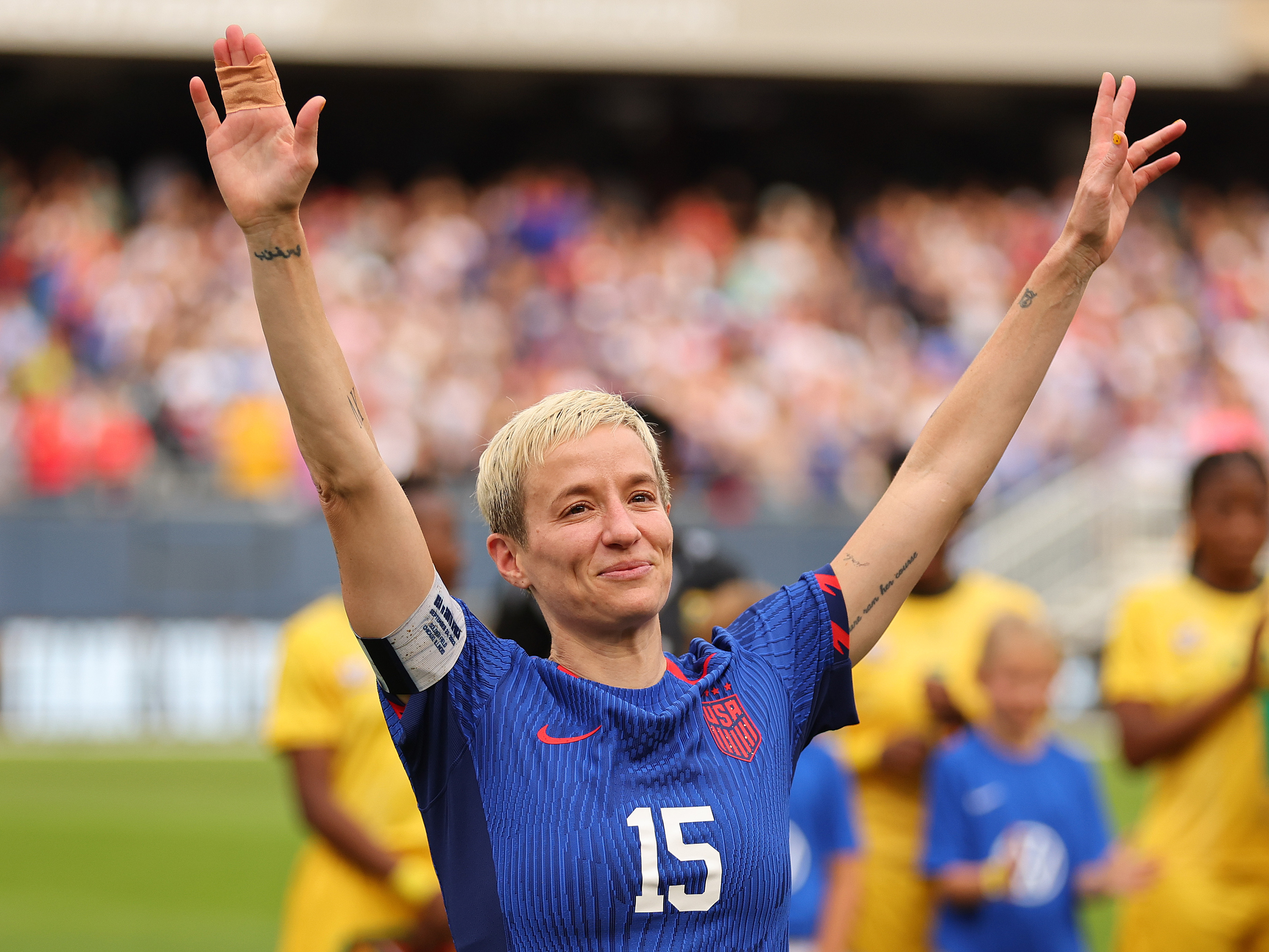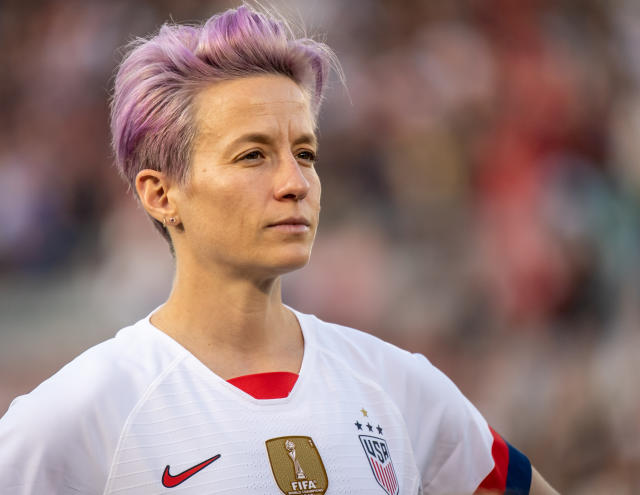Megan Rapinoe, a prominent figure in women’s soccer and a longtime advocate for equality, has recently spoken out in support of Lia Thomas, a transgender swimmer whose participation in women’s sports has sparked widespread debate.
Rapinoe’s vocal defense of Thomas underscores her commitment to fostering inclusivity and challenging societal norms regarding gender identity in athletics.
Rapinoe, a two-time World Cup champion and Olympic gold medalist, has built a reputation for her activism both on and off the field. Her advocacy spans issues such as equal pay, LGBTQ+ rights, and racial justice, making her one of the most influential voices in contemporary sports.
In addressing the controversy surrounding Lia Thomas, Rapinoe emphasized that Thomas’s gender identity as a woman is valid and deserving of respect. “She’s a woman just like me,” Rapinoe stated, reaffirming her belief that Thomas has the right to compete in women’s sports.
Lia Thomas, who previously competed in men’s swimming events before transitioning, has faced significant scrutiny since her successes in women’s collegiate swimming began drawing attention. Critics argue that her participation in women’s sports provides an unfair advantage due to physiological factors, even after undergoing hormone therapy as part of her transition.
Proponents of Thomas’s inclusion, like Rapinoe, counter these claims by highlighting the importance of affirming gender identity and promoting inclusivity within athletics.
Rapinoe’s support comes at a time when the sports world is grappling with complex questions about fairness, gender, and the boundaries of competition. The debate often pits concerns over competitive equity against the rights of transgender athletes to participate in sports consistent with their gender identity.

While scientific studies continue to explore the effects of transition-related treatments on athletic performance, Rapinoe’s stance prioritizes empathy and inclusion, urging the sporting community to embrace diversity.
In her defense of Thomas, Rapinoe has highlighted the broader societal implications of excluding transgender athletes from sports. She has pointed to the need for greater understanding and compassion, suggesting that the focus should shift from scrutinizing individual athletes to addressing systemic inequities in sports as a whole.
“The real challenge isn’t Lia or any other transgender athlete—it’s the structures that perpetuate inequality across the board,” she argued.
Rapinoe’s remarks also touch on the broader cultural debates surrounding gender identity, echoing calls for a more inclusive definition of womanhood.

By framing Thomas’s participation as a human rights issue, Rapinoe aligns herself with a growing movement that advocates for the recognition of transgender individuals across all facets of society, including sports.
The soccer star’s position has not come without backlash. Critics, including some within the sporting community, have questioned whether her stance undermines the progress made in women’s sports over the years.
They argue that women fought for decades to establish separate competitions to ensure fairness and equity, and they fear that including transgender athletes might compromise these gains. However, Rapinoe remains steadfast, asserting that inclusivity and fairness are not mutually exclusive goals.
Rapinoe’s advocacy is emblematic of her broader approach to activism, which often involves challenging conventional thinking and confronting uncomfortable truths.
Her ability to use her platform to amplify marginalized voices has earned her both admiration and criticism, but it is a testament to her unwavering dedication to social justice.

As discussions about Lia Thomas and transgender athletes continue to unfold, Rapinoe’s stance provides a powerful counter-narrative to exclusionary rhetoric. By emphasizing the shared humanity of all athletes and advocating for policies that reflect this understanding, she seeks to pave the way for a more inclusive future in sports.
The implications of Rapinoe’s support extend beyond the pool and field. Her advocacy signals a cultural shift toward greater acceptance of transgender individuals and a reexamination of traditional norms surrounding gender and competition.
Whether this leads to broader policy changes within sports organizations or inspires a new wave of activism, her voice adds a compelling dimension to an already complex conversation.

In conclusion, Megan Rapinoe’s vocal support for Lia Thomas reaffirms her commitment to equality and inclusivity in sports. By framing Thomas’s participation as a human rights issue and advocating for a more inclusive definition of womanhood, Rapinoe challenges the sports world to move beyond entrenched biases and embrace the diversity of its athletes.
As debates over transgender inclusion in sports continue, Rapinoe’s unwavering stance serves as both a call to action and a reminder of the transformative power of empathy and understanding.






